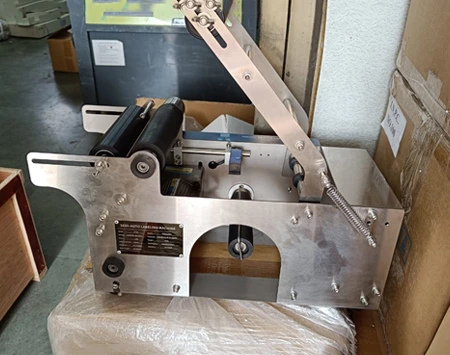Sticker Labeling Machine Manufacturer & supplier
Ahmedabad's Industry Standard for Product Branding
The Automatic Sticker Labeling Machine is the core of the high packaging lines in Ahmedabad, which serves the giant pharmaceutical, FMCG, and bottled beverage industries.
These machines use pressure-sensitive labels (PSL) that are placed on different containers pinpointedly, to allow branding compliance and a uniform visual appearance.
Key Technology: Servo vs. Stepper Drive
The modern sticker labeling machines use highly developed drive systems to provide high speed and accuracy in the placement:
- I. Stepper Motor
- II. Servo Motor


